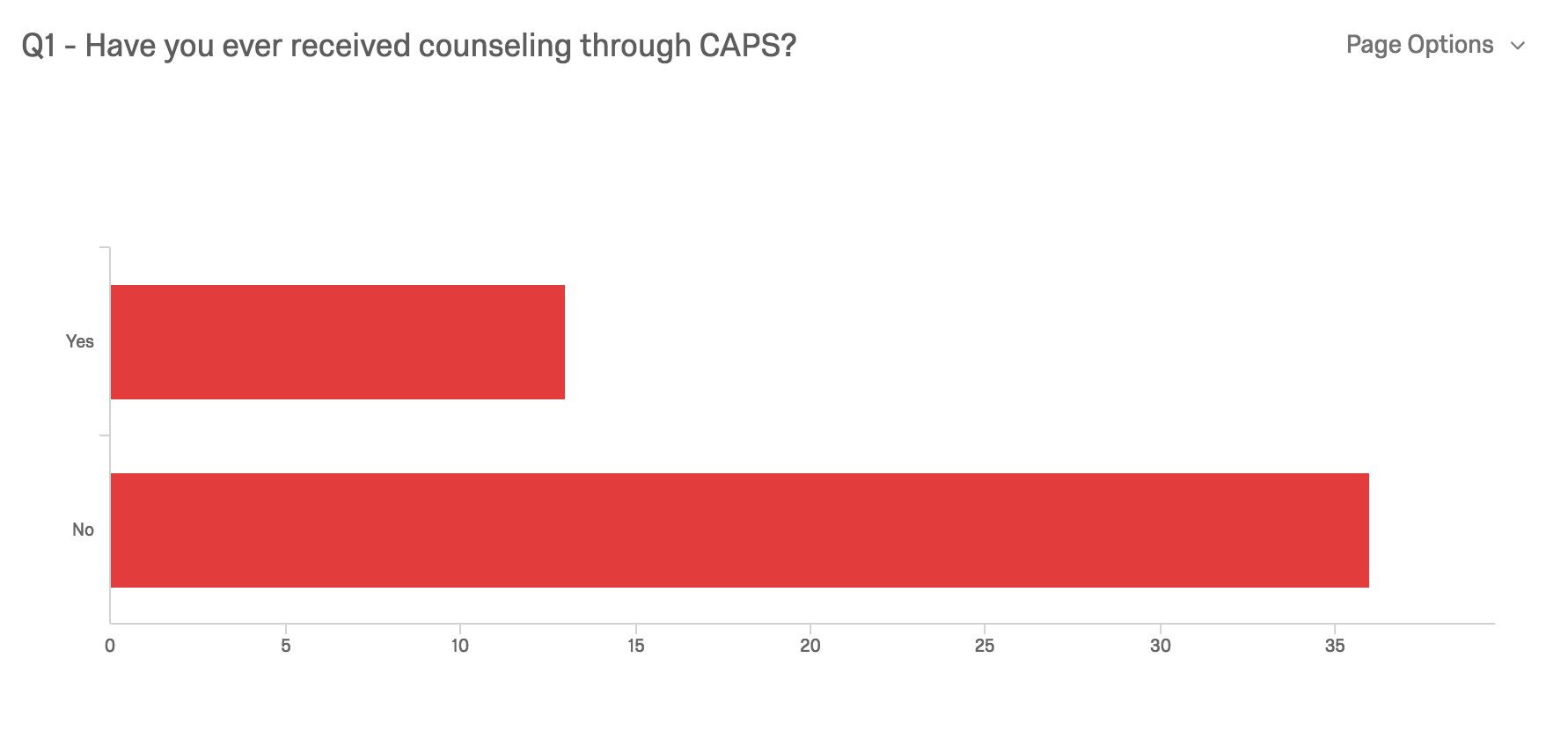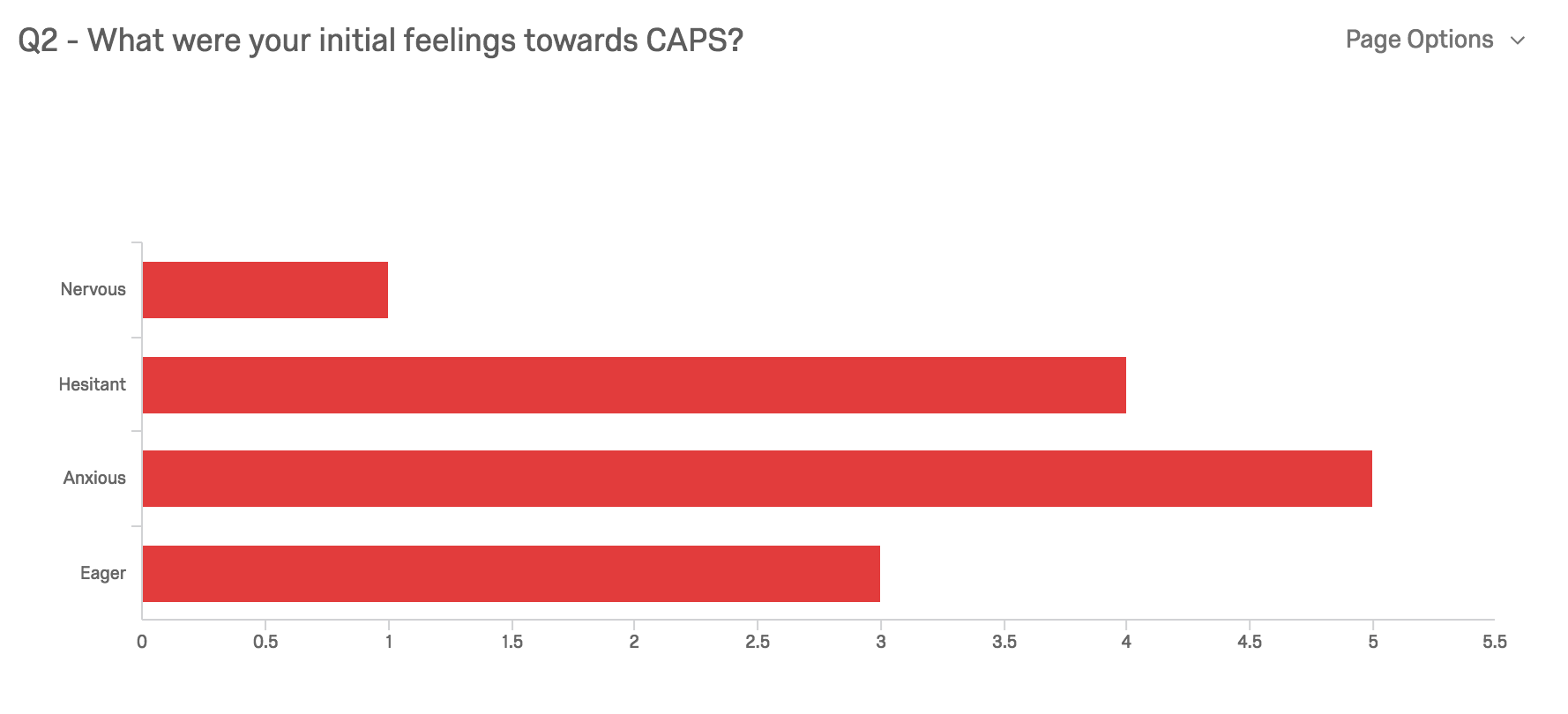Revealing Students’ Attitudes Towards CAPS, and Mental Health Stigmas in the TCNJ Community
November 3, 2017
Sighs of exasperation were let out at The College of New Jersey this past week, as students struggled to discuss mental illness.
TCNJ, “a highly selective public residential college” nestled right outside New Jersey’s capital city, is home to approximately 7,000 hard-working undergraduate students.
When these individuals decided to call TCNJ home, they were greeted by the enthusiastic Roscoe the Lion, community advisers, a sea of new fellow students, and a plethora of welcoming clubs and school services.
One program offered by The College is the Counseling and Psychological Services, more widely known as CAPS. While students quickly come to learn that CAPS is located right next to Student Health Services in Eickhoff Hall, the more difficult concept is going about utilizing the service.
As promoted by its website, “the mission of CAPS is to support the academic goals of the College through assisting students with personal challenges that interfere with their academic progress [and to] encourage students to attend to all of their developmental needs whether they are academic, personal, physical, interpersonal, social, or spiritual” (https://caps.tcnj.edu/).
So, while the bumbling TCNJ student body recognizes CAPS and the services it provides, how do students really feel about seeking out help for their emotional needs?
Considering CAPS is completely confidential, a select few students were generous enough to come forward and openly discuss their experiences with CAPS.
As one student reflected on her visit she said, “I remember sitting in the waiting room thinking, ‘what do these people assume what’s wrong with me?’” Diana McKenna, senior English major.
Above is an audio clip documenting Diana McKenna's sentiments towards using CAPS.
Already, in the first interview, this negative stigma circulating around CAPS began to make itself known. Diana mentioned that she is comfortable attending CAPS counseling but feels there a general stigma against the services.
Most importantly however, Diana confidently stated, “I definitely feel like CAPS helped me.”
In a separate interview with Michael Rodriguez, junior English major, he said without any hesitance, “Oh I was terrified. I had no idea what to expect [from CAPS].” In terms of any stigmas related to the counseling however, Michael made a sound point in saying “Any stigmas that I can think of in terms of CAPS are the ones you give yourself. When it comes to mental health, you’re your own worst enemy. The moment you realize that it’s like being asleep and then waking up.”
In the above audio clip, Michael discusses common issues with approaches that others take when addressing mental illness.
Michael and Diana both felt that TCNJ needs to do better at advertising CAPS. For instance, Michael said, “TCNJ does an OK job when you first get here, in making you aware CAPS exists, but they don’t really do much after that.”
When Michael started struggling his sophomore year, he remembered his community adviser sliding a paper under his door with information regarding CAPS. He thought, “Wow…thanks a lot.”
However, Michael also mentioned that in his creative writing class, his professor suggested he spend time in CAPS that day, rather than attend class. He really appreciated how his friends and professors pushed him towards using the services.
“Once you’re at CAPs it’s great…the problem is getting to CAPS” Michael said.
In terms of overcoming mental illnesses, Michael said that “it’s a very touchy subject, and it’s very difficult to deal with.”
In a third interview, Senior Katie Petersen compared the stigma around CAPS to that around the Planned Parenthood clinic at TCNJ. “If you go to Planned Parenthood, people assume you’re going for a bad reason, not necessarily getting a check-up or birth control. They assume you’re either pregnant or have a STD,” she said.
Katie went on to say, “I think there is a negative stigma [for CAPS] because you don’t see people talking about good things at CAPS, it’s more so discussing bad situations you’ve run into.”
In a convenience sampling, 44 students responded to a brief online survey regarding any potential stigmas around CAPS.
29 percent of students reported to have received CAPS counseling, while 70.5 percent opted that they had never utilized CAPS counseling.
For the minority who attended CAPS, most reported feeling “anxious” upon their first visit, while “hesitant” was the next most popular choice. “Eager” and “nervous” ranked lower.
On an interesting note, for those with friends in CAPS, 63 percent of respondents claimed “they [the friends] were willing to talk about it openly” while 30 percent reported CAPS was never spoken about, and 6 percent claimed “they [friends] tried to hide/deny their use of counseling sessions.”
Most intriguing however, is that the survey was divided precisely in half when the question, “Do you feel there is a stigma around CAPS?” was asked.
For those who reported, “Yes, a stigma exists around CAPS,” the most common open-ended response claimed that there is a fear of judgment for seeking out counseling. Another common response was that people hesitate in seeking help from CAPS because they feel “ashamed, uncomfortable, or embarrassed.”
For respondents claiming, “No, there is no stigma around CAPS,” the majority of responses claimed that “nowadays more people are open with [the conversation over] mental health” and also that “CAPS is a great resource that no one should feel ashamed for using.”
So then, there proves to be significant controversy and conflicting feelings within this selected sample of student body who responded to the poll. To be clear, the survey was sent out to a very large variety of students, ranging mostly from sophomores to seniors, and the majority of which were likely female.
Finally, to end on a more positive note, 65.91 percent of survey takers said, “Yes! TCNJ does advocate for the wellbeing of students’ mental health.” Mostly for reasons such as, “TCNJ administrators always make the resources available known.
To end the article on a positive note, here are audio clips from Diana and Michael with optimistic quotes.





Leave a comment
You must be logged in to post a comment.